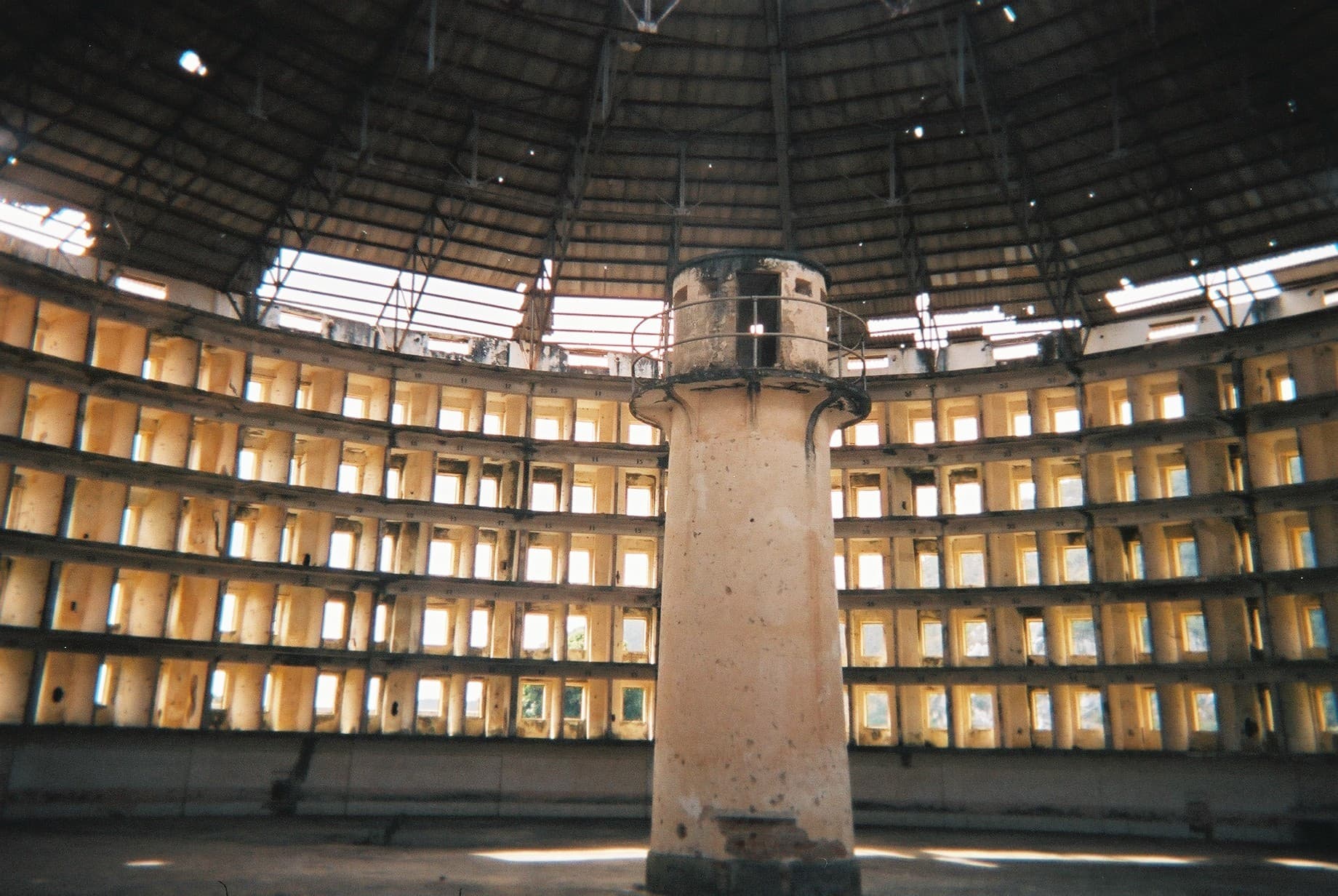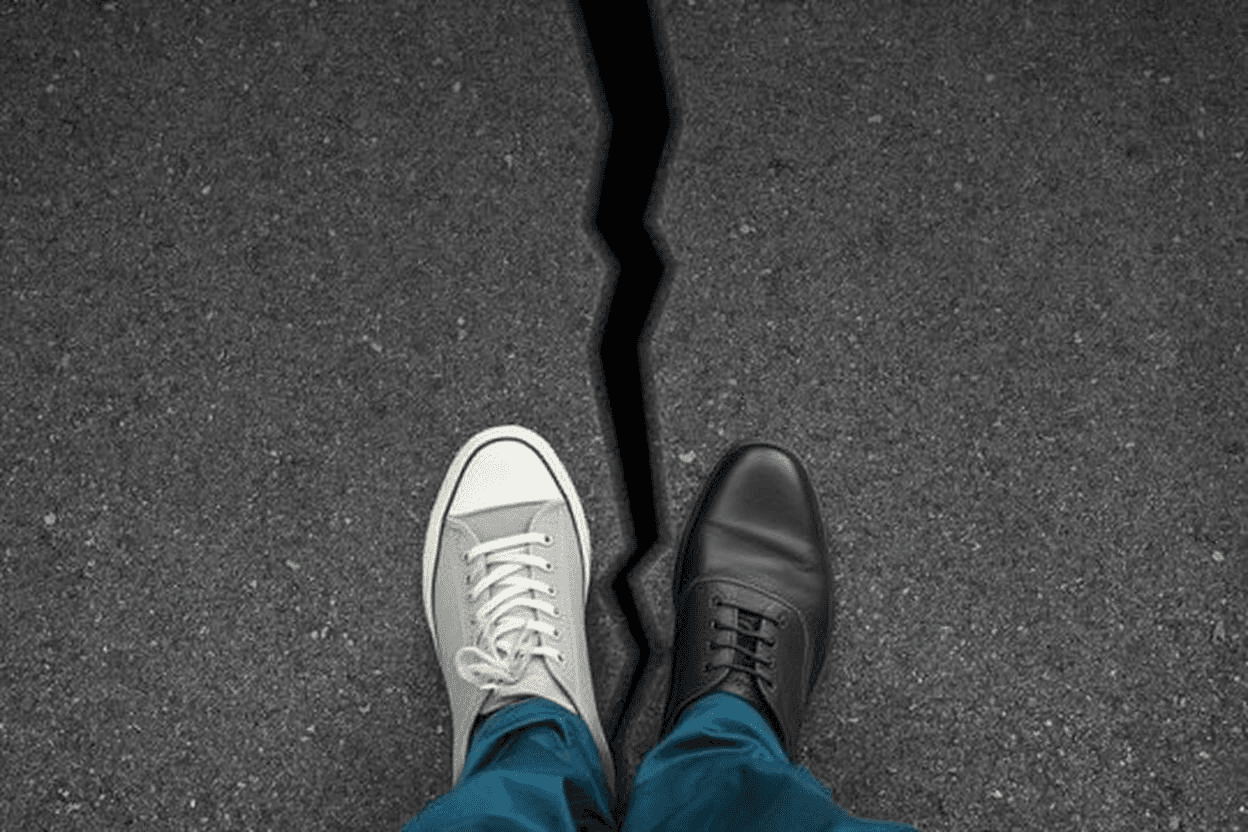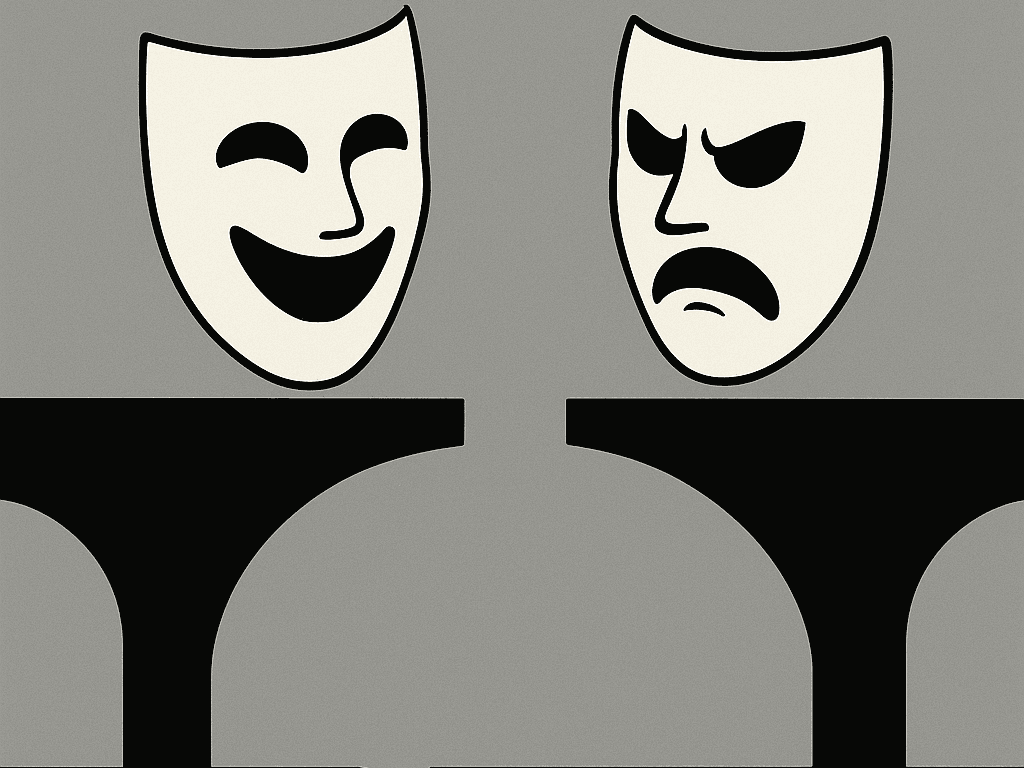The Panopticon Within: Foucault and the Paradox of Modern Free Speech
06/17/2025
Summary
A philosophical exploration of how Foucault's Panopticon theory illuminates modern self-censorship and the invisible power of social discourse.
Introduction: The Invisible Prison
Originally, I had planned a different, more provocative introduction about the current world stage for this article. Shortly before publishing, however, I decided to have the complete article reviewed by several leading AI models. They all came to the same conclusion: Publishing this blog post is risky and could be viewed negatively by future universities and potential employers.
The reason? Not because there was anything wrong with the content, let alone because it took political positions. Rather, because I as a person could be associated with the "provocative" person from the original introduction through a simple Google search or AI query in the future, and this could potentially have negative effects.
I followed the advice. And realized: This is exactly the point.
Modern power structures are mostly not enforced through violence and law, but rather through prevailing discourse and social pressure, which decide what can be said and what cannot.
AI too is increasingly becoming part of this discourse apparatus and is no longer considered neutral technology, but rather an amplifier of social norms.
The French philosopher Michel Foucault already dealt extensively with these topics in the last century. In this article, I want to present Foucault's insights to you and discuss in today's context whether our modern, Western world is heading in the wrong direction.
1. Foucault's Theories
Foucault's central insight is that power no longer functions hierarchically from top to bottom, as we normally imagine it, for example a king having power over his people or a boss over workers. According to Foucault, power is everywhere in our society, we constantly exercise it through social norms, language, social rules and self-surveillance. When we apply this to our daily life: Who tells you how to dress for work or church? Are you forced to dress properly or does society expect it from you?
Foucault used the metaphor of the Panopticon prison, a type of prison with a tower in the center where prisoners cannot see whether they are being watched or not. This leads them to feel watched all the time and always follow the rules, out of fear of consequences if someone is watching them. This represents our modern society in a way: We live in a world of constant surveillance through cameras, social media and social pressure. We behave as society expects, not because someone forces us to, but because we believe everyone expects it from us. That's the paradox: We are simultaneously guards over the people around us and prisoners of the people around us.

Another important thesis of Foucault is that knowledge is usually not neutral, but part of power. Truth itself is not something objective that simply exists, it is produced. Institutions like universities, media, scientific research directly shape what society accepts as truth. Experts in biology, psychology, medicine and so on create these truths, they define what society sees as "normal", "sick", "deviant" and so on. Unlike hard scientific definitions, these social scientific analyses usually cannot be directly measured, but are based on experiments and hypotheses. In such sciences there is usually no simple solution in the sense of "This is universally correct", but one must decide which discourse to follow.
Universities and schools show particularly clearly how power works through knowledge. They are considered places of free thinking, open discussion and critical reflection. But in reality, in my experience, they often teach not only how to think, but also what to think. Study content, research focuses, terminology: All of this follows the dominant discourses of a time. What is "normal", "scientific" or "problematic" is not only researched here, but also reproduced.
This means institutions are not completely neutral, but rather active producers of social truth.
According to Foucault, this is no coincidence: Knowledge is always embedded in power and no institution stands outside of it.
2. Cancel Culture as Expression of This Power
But what happens when you resist this social power? Do you get arrested? Or do you get fewer points in a social credit system?
No, the consequences are much more deeply rooted in society. The legal consequences often used in autocracies have transformed into social consequences. Public figures face shitstorms because they say the wrong sentence on camera, politicians lose elections because they laugh at the wrong moment. Not through legal convictions, but through destruction in social public reporting and social media, which consists of thousands of articles and comments and mostly reports from the perspective of the current discourse, also known as "Cancel Culture".
You might think this type of consequence only affects prominent people, but in everyday life too, people who go against the general discourse are often labeled as crazy or weird and, depending on the political camp, categorized as "Nazi", "Communist", "climate hysteric" or "conspiracy theorist". The pattern repeats itself again and again: Moral condemnation instead of substantive debate. Foucault would say: This is perfect disciplinary power. No laws needed, we discipline each other. The Panopticon has moved from prison walls into our heads.
3. Why This Is Dangerous
Using the model of the internal Panopticon, we can draw many conclusions about problems in our society today and at least partially explain the increasing social division.
The first problem is the blanket dismissal of legitimate criticism. Anyone who expresses concerns about migration policy today is quickly labeled as right-wing. Anyone who points out problems in the education system is considered backward. Anyone who has security concerns is dismissed as a fearmonger. Substantive debate doesn't happen, instead there's moral categorization. The Panopticon works: Out of fear of this categorization, many prefer to stay silent.
This dynamic leads to the inflationary use of moral combat terms. "Nazi", "racist", "conspiracy theorist" on one side, "do-gooder", "system puppet", "sheep" on the other. These terms, which actually have specific meanings, become universal weapons in discourse. Once someone is marked this way, their arguments no longer need to be heard. The person is discursively "finished".
The tragic thing about this: People don't radicalize because they are naturally radical, but because they don't feel heard. When legitimate concerns are dismissed wholesale as "right" or "left", people look for spaces where they will be heard and often end up with actually radical groups. The Panopticon, which was supposed to prevent extreme positions, practically produces them.
The result is a self-reinforcing spiral of division. The more people are excluded from acceptable discourse space, the more they retreat into echo chambers. The more extreme these echo chambers become, the more the original exclusion seems confirmed, with society splitting into camps that no longer talk with each other, but only about each other.

Foucault would say: The modern power system produces exactly the "deviants" it claims to fight. And we are all part of this system, as guards and prisoners at the same time.
4. Education, Media and Conformity Pressure
The mechanisms of the Panopticon are reinforced by two central institutions: educational institutions and media. Both should actually be places of enlightenment and critical thinking. But in practice, they often function as amplifiers of conformity pressure.
Educational institutions face the challenge of balancing critical thinking and social values. Instead of teaching students how to examine arguments, question sources and draw their own conclusions, schools and universities in my view increasingly teach which positions are "right".
The media in turn have transformed from information providers to moral producers. Instead of analyzing complex issues and presenting different perspectives, many media outlets stage a permanent moral competition: Who is good? Who is evil? Who behaved wrongly? The headline "X says Y" is replaced by "Outrage over X because of Y".
This moralization makes factual debates impossible. When every deviation from the mainstream is presented not as an interesting contribution to discussion, but as a moral failing or even threat, who still dares to express divergent thoughts?
The result is a generation that knows perfectly what to think, but hasn't learned how to think independently. Young people can correctly recite buzzwords like "diversity", "sustainability", "inclusion", but when you ask them why they believe this or what counterarguments there might be, there's often silence. They were trained to show the "right" attitude, not to critically question attitudes.
Foucault would see this as a perfect example of producing "docile bodies": people who monitor and regulate themselves without external force being necessary. The education system doesn't produce critical thinkers, but conformist subjects who have internalized the Panopticon.
5. What Follows From This
The consequences of this development are fundamental and threaten the foundations of our democratic society.
Society is splitting into moral camps. Instead of political positions that can be debated, we have moral identities that must be defended. There are no longer "different opinions", but "the good guys" and "the bad guys". One side consists of the enlightened, open-minded, progressive forces. The others are the backward, dangerous elements that must be fought, with hardly anyone in between.
This black and white thinking makes any bridge building impossible and ultimately contradicts basic democratic principles. How can you discuss with someone you consider morally corrupt? How can you find compromise with people you see as a threat to democracy? The Panopticon has not only taught us to monitor ourselves, it has taught us to see others as enemies.

In this atmosphere, real discourse dies. What we have instead are mock discussions where everyone just plays their expected role. The talk show becomes theater, the parliamentary debate becomes ritual, the newspaper commentary becomes sermon. No one expects arguments to convince anyone anymore. It's only about reinforcing your own side and demonizing the other.
The most dangerous thing about this: Democracy becomes a hollow facade. Democracy lives from the competition of ideas, from the possibility that majorities can change, that better arguments can prevail. But when only one opinion is considered legitimate, when divergent positions are not refuted but suppressed, then we no longer have democracy, we are developing toward opinion conformity with a democratic veneer.
Foucault would remind us: A society that considers itself free, but where everyone must think the same, is not free. It is just particularly efficient at concealing its lack of freedom. The Panopticon is perfect when the prisoners have forgotten they are prisoners.
The irony is: The more we believe we are protecting democracy by excluding "wrong" opinions, the more we destroy it. We become what we believe we are fighting, a system that tolerates no deviation.
6. Conclusion
Let's return to the beginning. The fact that I censored my own text on the advice of AI models shows: The Panopticon is real. It doesn't consist of walls and guards, but of algorithms and fears, of social norms and career worries.
Foucault helps us understand why this is so. His theory of the Panopticon explains how we have become our own guards. How we censor ourselves before others have to. How power works not through laws, but through discourses.
But Foucault doesn't provide a ready solution. He shows us the cage, but not the key. We have to find that ourselves.
The first step is radical honesty. We must learn to distinguish between legitimate criticism and real hate. Not everyone who criticizes migration is a racist. Not everyone who demonstrates for climate protection is an extremist. Not everyone who questions Corona measures is a conspiracy theorist. This differentiation is exhausting, it's easier to put people in boxes. But exactly this laziness destroys discourse.
The second step is painful self-reflection. We are all part of the Panopticon. We have all stayed silent when we should have spoken. We have all morally condemned others instead of examining their arguments. The question is: Are we ready to change this? Are we ready to see contradiction not as a threat, but as an opportunity?
The third step is courageous action. Freedom needs not only constitutional rights, it needs lived practice. We must create and defend spaces where real exchange is possible. Spaces where you can be wrong. Spaces where arguments count more than attitudes. This starts small: in your circle of friends, at work, in the family.
The good news is: What we built ourselves, we can also dismantle. The invisible prison only exists as long as we believe in it. The first step to freedom is recognizing that the door was never locked. We just need the courage to open it.
Sources
Image Credits
Figure 1: By Friman, CC BY-SA 3.0, https://commons.wikimedia.org/w/index.php?curid=2410607
Figure 2: AI-Generated with flux-1.1-pro-ultra
Figure 3: AI-Generated with ChatGPT